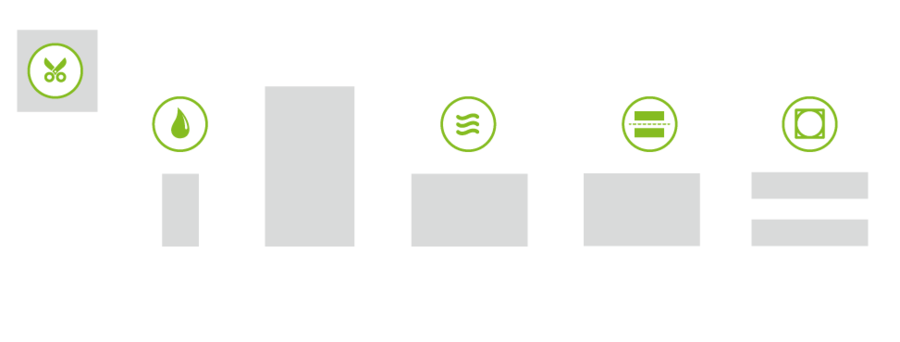INDUSTRIAL PILOT PLANT
Large-scale separation processes
The plant illustrates the separation process
on an industrial scale, thus validating the
procedure for different applications.
Normally a corresponding separation liquid for separating the relevant composite material is initially developed in the laboratory, before being used in the plant to treat larger quantities of the shredded material. The evaluation includes the success of the separation, process times and other relevant parameters. Contact us if you are interested in recycling a composite material and would like to validate the feasibility of this on an industrial scale.
FIRST INTEGRATED RECYCLING PLANT
first recycling plant of its kind for the processing of composite
flexible packaging waste as an integrative approach “from one provider”. Flexible
multilayer wastes, which came from the packaging industry and consisting
of the materials PET/Al/PE, PET/Al, Al/PE, PE/Al/PE will be treated in
the facility.
We take care of the entire value chain, from purchasing of waste and
recycling to the distribution of the reclaimed materials.
The first plant will have a capacity of app. 17,000 t/a input of
composite packaging films and an output of around 16,000 t/a of high quality
secondary raw materials.
The output consists of nearly 10,000 t/a RE-LD-PE granules,
3,400 t/a Al-briquettes and 2,600 t/a RE-PET agglomerate.
The recycling plant will represent a significant step towards waste
material use, a reduction of waste incineration and CO2 emissions.
Start of production is planned for 2021. More than 40 new,
highly skilled and sustainable jobs will be created. Additional plants
follow in intervals of approximately 18 – 24 months.
Feasibility
We look before we
leap!
Feasibility studies reduce the technological and economic risk. As a <br>first step to an innovative recycling solution for a new application, we <br>usually perform a feasibility study for our clients in order to <br>demonstrate the technical feasibility of the specific composite<br> material and to assess the business case. This package includes:

Development of an individual separation liquid

Conduct the experiments in our own laboratory and pilot plant

Definition of the industrial process

Assessment of the economic feasibility

BASIC ENGINEERING
Licence to separate
Basic engineering involves plant planning with all fundamental guidelines and specifications that are required to construct the plant correctly. It puts clients in the position to establish their own recycling plant. This engineering package can variably set up and contents for example the process flow chart, the safety concept, P&I diagrams, mass balance of materials, the process description, a list and specification of the equipment and a basic layout and installation plan. In addition to its expert competence in process technology, saperatec also uses its experiences from its own industrial pilot plant.
PLANT CONSTRUCTION
Realisation by plant
engineers
The recycling plant is realized by an established plant construction company based on saperatec basic engineering. The plant construction is selected jointly with the client and taking the application and location into account. Thus potential synergy effects as well as the individual risk profile of the client can be considered.

